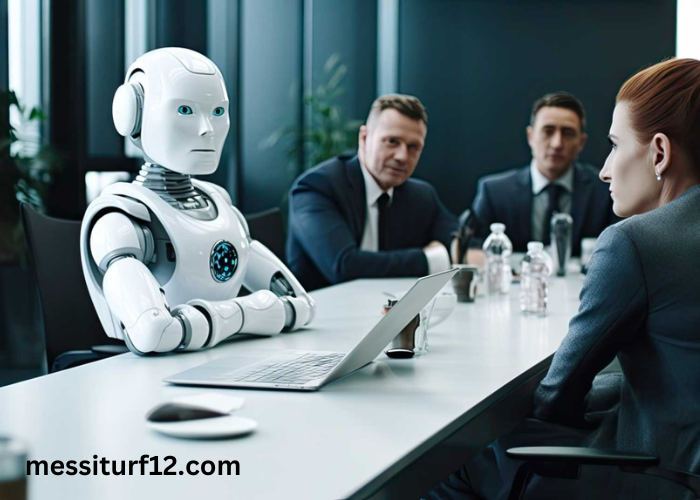Hollywood has always been at the forefront of innovation, pushing the boundaries of storytelling and technology to create captivating entertainment. In recent years, the integration of artificial intelligence (AI) into the filmmaking process has begun to transform the industry in unprecedented ways. From pre-production to post-production, AI is revolutionizing how movies are made, enhancing creativity, efficiency, and even the viewing experience itself. Explore a wide range of movies and TV shows on SDMoviesPoint2. Stream or download your favorite content in high quality for an unparalleled viewing experience.
Pre-Production: Enhancing Creativity and Efficiency
In the pre-production phase, AI is proving to be an invaluable tool for scriptwriters and producers. Traditionally, writing a compelling script involves countless hours of brainstorming, drafting, and revising. AI-powered software, like ScriptBook and WriterDuet, can analyze existing scripts and generate story ideas, plot points, and character arcs, helping writers overcome creative blocks and refine their narratives.
Moreover, AI algorithms can predict the potential success of a script by analyzing data from past box office hits and audience preferences. This predictive analytics capability allows studios to make more informed decisions about which projects to greenlight, reducing financial risks and increasing the chances of commercial success.
Production: Streamlining Filmmaking Processes
During the production phase, AI technologies are streamlining various aspects of filmmaking, making the process more efficient and cost-effective. One of the most significant advancements is in visual effects (VFX). AI-powered tools can now automate complex VFX tasks, such as generating realistic backgrounds, simulating natural phenomena, and even de-aging actors. For instance, the de-aging technology used in Martin Scorsese’s “The Irishman” was a groundbreaking application of AI, enabling actors to appear decades younger without the need for extensive makeup or prosthetics.
AI is also enhancing the capabilities of virtual production, a technique popularized by shows like “The Mandalorian.” Virtual production uses AI-driven game engines, such as Unreal Engine, to create immersive, real-time environments that actors can interact with on set. This technology not only saves time and money by reducing the need for location shoots but also allows for greater creative flexibility.
Post-Production: Revolutionizing Editing and Distribution
In post-production, AI is transforming the editing process. Traditional video editing is a time-consuming task that requires meticulous attention to detail. AI-driven editing software, like Adobe Premiere Pro’s Sensei, can automate many aspects of editing, such as color correction, scene transitions, and audio enhancement. These tools use machine learning algorithms to analyze footage and make intelligent editing decisions, significantly speeding up the post-production process.
AI is also playing a crucial role in content distribution and marketing. Machine learning algorithms can analyze viewer data to personalize recommendations on streaming platforms like Netflix and Amazon Prime, ensuring that audiences are presented with content tailored to their preferences. This targeted approach not only enhances the viewer experience but also increases engagement and retention rates.
Ethical Considerations and the Human Touch
While AI offers numerous benefits to the filmmaking industry, it also raises important ethical considerations. The use of AI to create hyper-realistic deepfakes, for instance, has sparked concerns about consent and authenticity. Additionally, there is an ongoing debate about the potential displacement of jobs as AI automates more aspects of the filmmaking process.
However, many industry experts believe that AI will not replace human creativity but rather augment it. Filmmaking is fundamentally a human endeavor, driven by emotions, experiences, and imagination. AI can handle repetitive and technical tasks, allowing filmmakers to focus on the creative aspects of storytelling. In this way, AI serves as a powerful collaborator, empowering artists to push the boundaries of their craft.
Conclusion: A New Era of Filmmaking
As AI continues to advance, its impact on Hollywood will only grow more profound. The integration of AI into filmmaking is not just about enhancing efficiency or reducing costs; it’s about unlocking new creative possibilities and transforming how stories are told. From pre-production to post-production, AI is revolutionizing the filmmaking process, ushering in a new era of innovation and storytelling in Hollywood. As we look to the future, one thing is clear: the magic of movies will always be driven by human creativity, now enhanced by the limitless potential of artificial intelligence.

